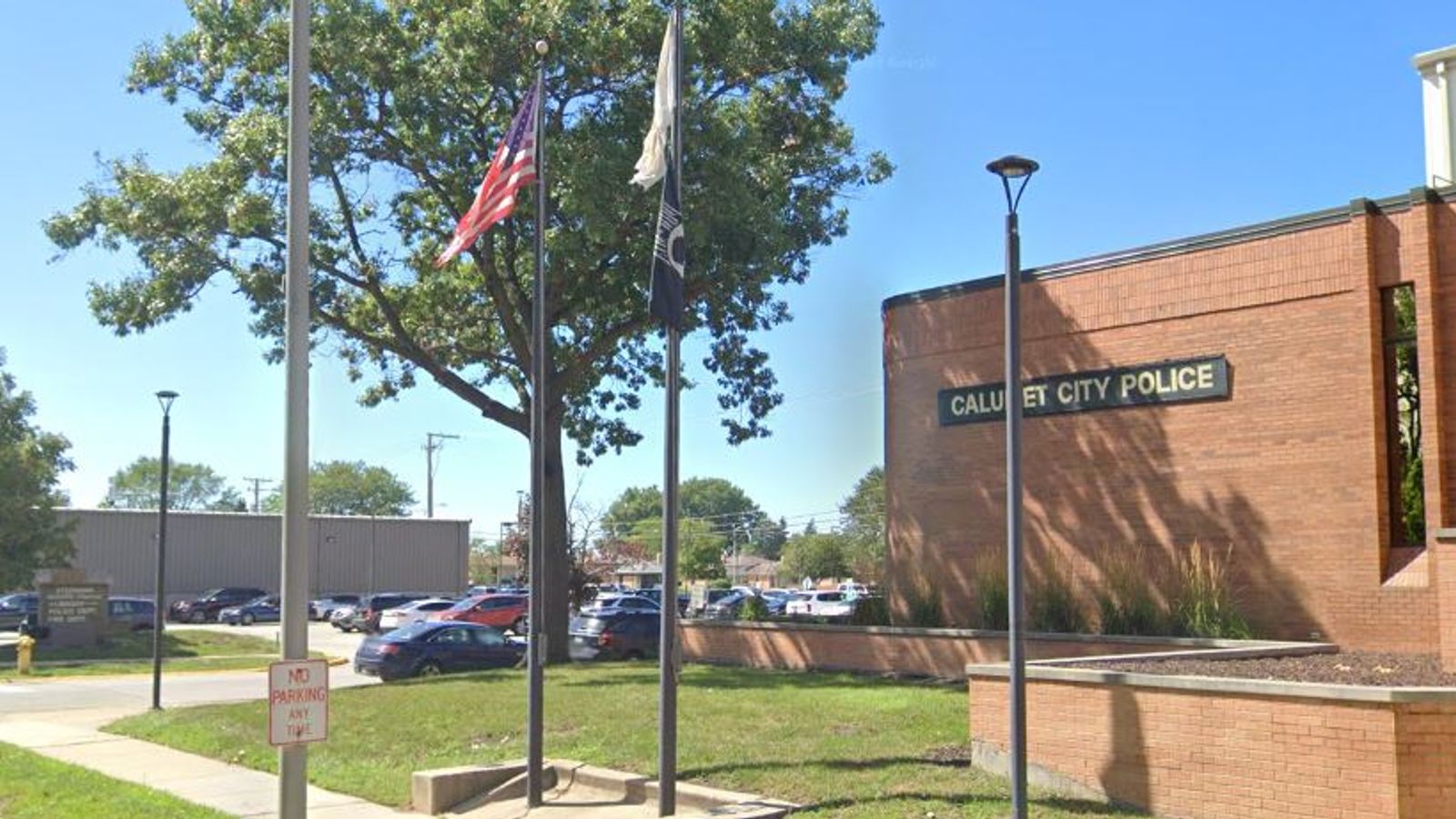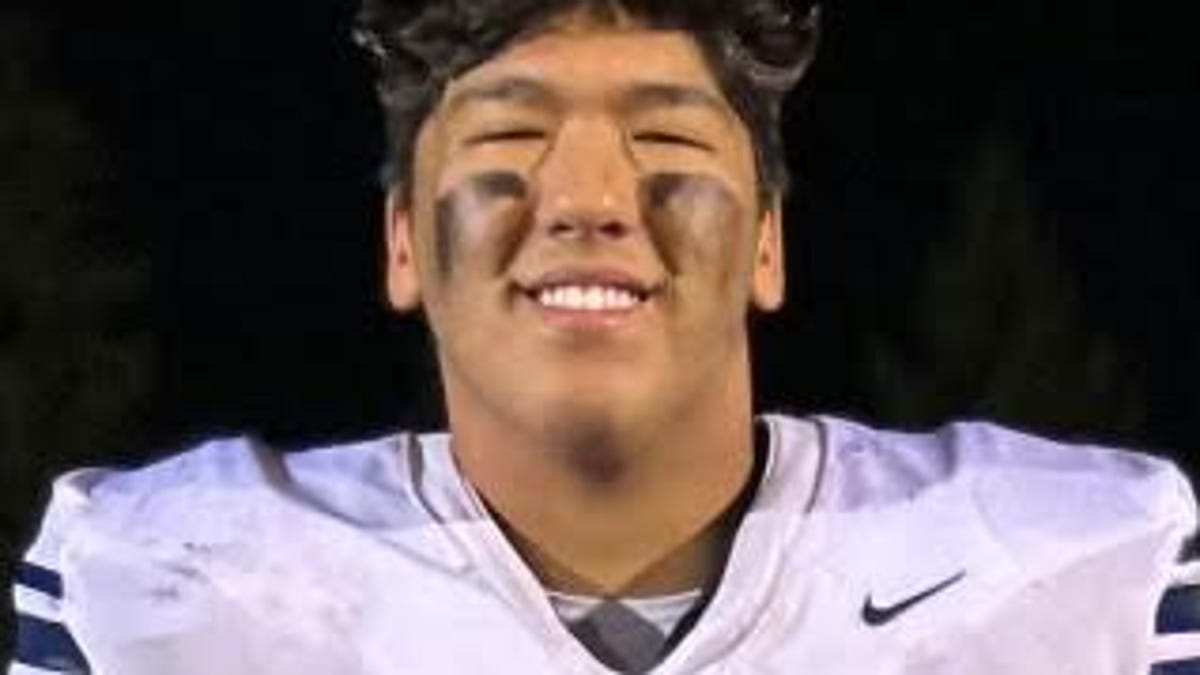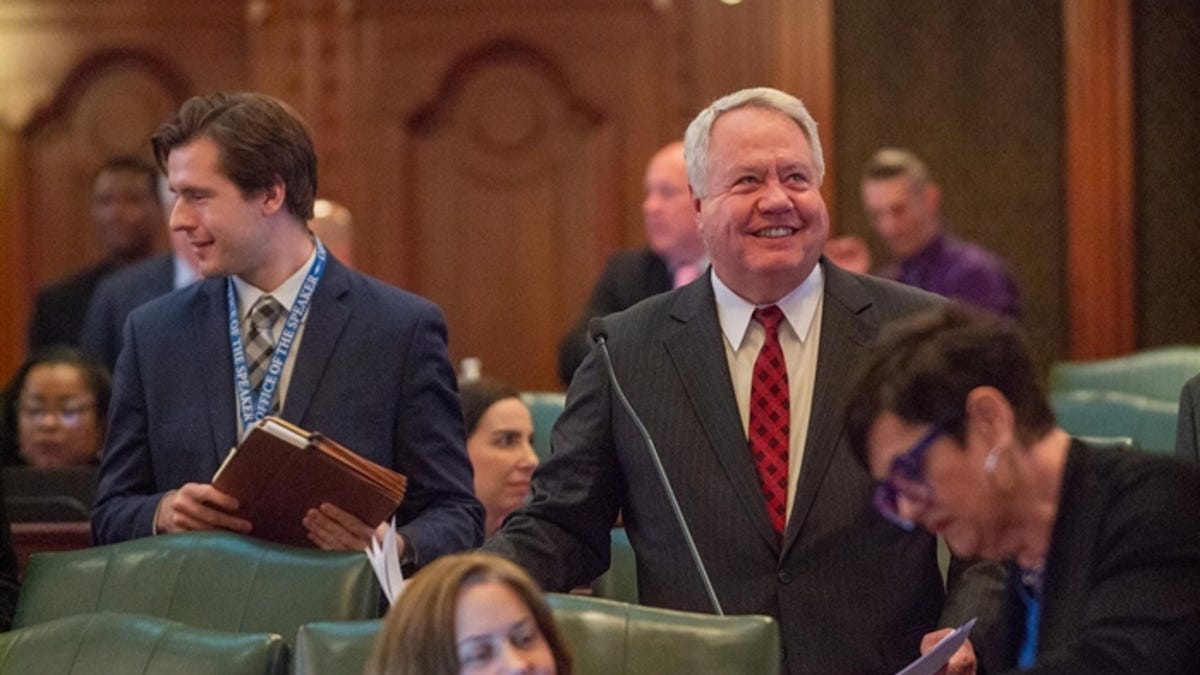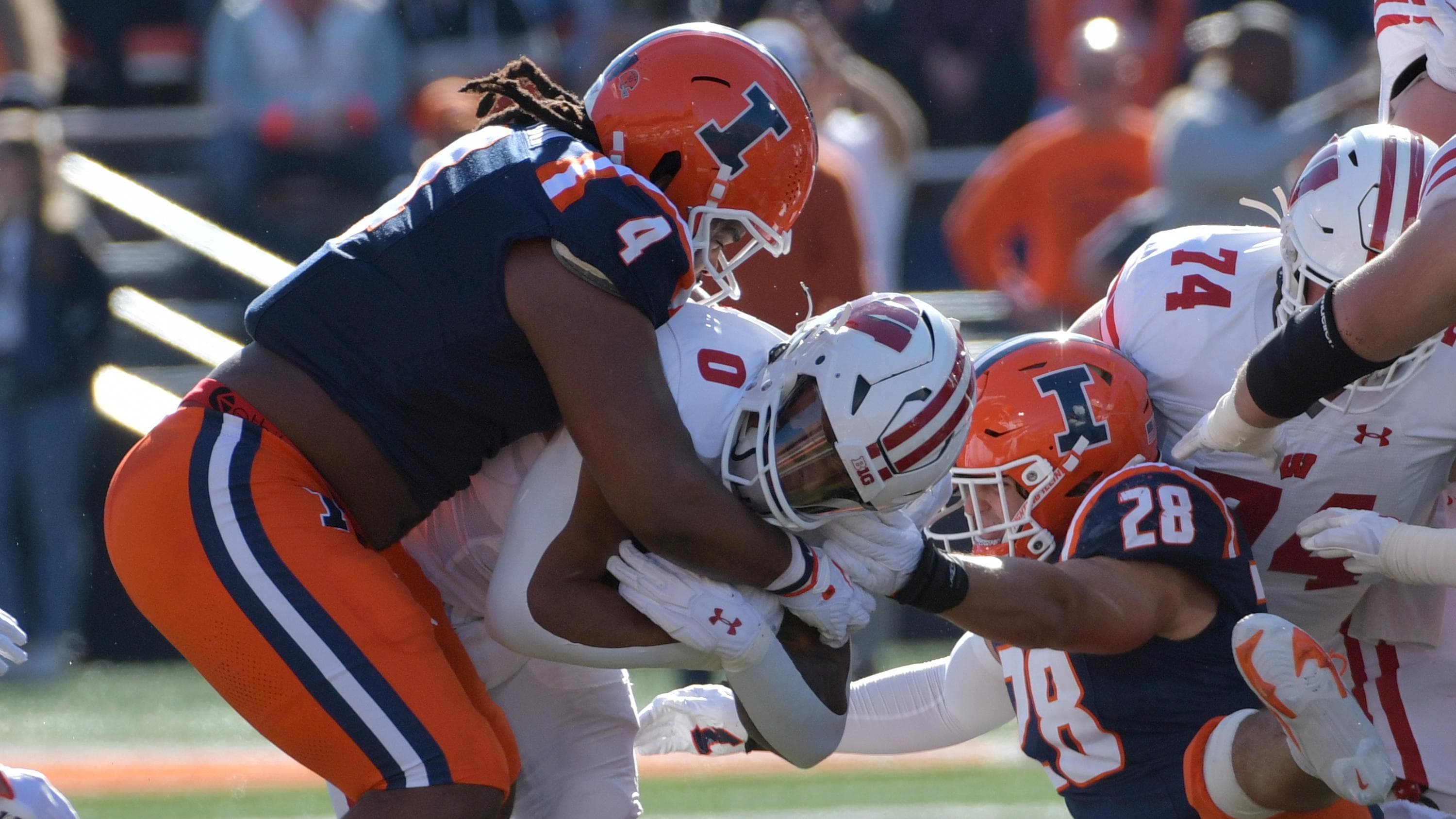Illinois
Pet grooming chain opens first Illinois store

The new store opened April 11 in Naperville, a western suburb of Chicago.
Woof Gang Bakery & Grooming is continuing its expansion, this time in the Midwest.
The grooming chain, where customers can find luxury grooming and spa services in addition to gourmet treats and premium pet food and nutrition options, has opened its first location in Illinois. The new store opened April 11 in Naperville, a western suburb of Chicago.
The entrance into Illinois follows Woof Gang’s recent expansions in Oregon and Michigan. The company says it plans to continue its growth in the Midwest, with four upcoming locations in Indiana, three more in Illinois, two in Minnesota, three in Michigan, and one in Wisconsin.
“We are thrilled to extend Woof Gang’s reach into Illinois with the opening of our first location in Naperville,” said Ricardo Azevedo, CEO of Woof Gang, who detailed the chain’s growth in an interview with Chain Store Age last year.. “Expanding into new locations allows us to fulfill our mission of providing exceptional care and top-quality products to pets and their owners. We are committed to becoming an integral part of the Naperville community, enriching the lives of pets and their families with every wagging tail and joyful bark.”
With the addition of Naperville, Woof Gang, founded in 2007, now operates a network of 350 locations open or under development across North America.
“As a pet lover and proud resident of Naperville, I am honored to bring Woof Gang’s exceptional services and products to my fellow pet enthusiasts in the area,” said Lisa Moran, franchisee of the new location.”Our team is dedicated to providing personalized care and creating lasting bonds with pets and their owners. We look forward to welcoming everyone to our store and providing a warm, inviting atmosphere.”

Illinois
Man, 79, charged over 1966 Illinois murder after DNA breakthrough

A 79-year-old man has been charged with murder of an 18-year-old woman who was stabbed more than 120 times in her suburban Chicago home almost six decades ago.
Karen Snider was found dead by her husband Paul Snider on the night of 12 November 1966 after he returned late to their house in Calumet City, Illinois.
James Barbier was arrested at his home in Missouri on Monday and charged with first-degree murder.
Police reopened the case in 2022 and sent items from the scene, including the victim’s dress and blood-stained bedsheet, for testing, according to Sky News’ US partner network, NBC News.
The blood matched Barbier’s DNA and following his arrest he was extradited to Illinois.
Mrs Snider was stabbed about 125 times, according to the medical examiner, while her two-month-old daughter was in a crib, unharmed.
Barbier, who worked with her husband at a railroad yard, was arrested in 1966 but never charged.
“The defendant arrived home and appeared nervous and was observed by her to have cuts on him, blood on him and blood on his clothes,” the state attorney’s office said.
“The defendant went inside their home right away, took off his clothes and put them in the washing machine.”
Read more from Sky News:
Bodies found in search for Australian brothers missing in Mexico
Health warning issued as heatwave grips South and Southeast Asia
The state’s attorney office said Barbier was released on Thursday after prosecutors did not seek to keep him in jail because of his age and “physical infirmity”.
But he is prohibited from leaving Missouri or Illinois and was required to give up his passport and firearms.
It was not clear if Barbier has an attorney and he faces another court hearing on 21 May.
Illinois
Is a tax on services in Illinois' future? Pritzker no longer rules it out.

Gov. J.B. Pritzker unexpectedly moved away last week from his longstanding opposition to taxing services, saying he didn’t want to start taking ideas off the table as lawmakers search for ways to fund and reform the Chicago region’s mass transit system.
As you may know, the Chicago area’s mass transit agencies are facing a $730 million “fiscal cliff” in 2026. The federal government’s COVID-era subsidies will expire that year. While ridership has declined as service worsens, operating costs have increased and average fare prices have fallen.
According to a report last year from the Chicago Metropolitan Agency for Planning, imposing a service tax could be part of the solution. The CMAP report said adding a service tax to the state’s existing 6.25% state tax rate could generate $1.1 to $1.9 billion in 2026. Some legislators are proposing a $1.5 billion annual funding increase for transit, as part of a consolidation effort.
So, my associate Isabel Miller (who contributed to this column) asked Pritzker during an unrelated media event if he wanted to take any state taxes off the table before the talks heat up, including the service tax.
“I have never been in favor of that before,” Pritzker said of the service tax. He has indeed opposed the tax all the way back to his first 2018 gubernatorial campaign, often calling it regressive.
“There may need to be a source of revenue here,” Pritzker said, “but that’s not something that I have favored in the past.”
As far as specifically ruling out a service tax, however, the governor said: “I really don’t want to start saying, ‘We’re not going to do this, we’re not going to do that.’ At this point, there are just so many pieces of this that we have to look at before we’re going to pay for what’s necessary here as we come off of support from the federal government and making sure we’re restoring transit services.”
Some legislative Democrats pushing transit agency consolidation and reform welcomed the news of the governor’s new openness to a service tax, which seems to be evidence the governor is serious about finding a fix.
“I appreciate the governor being open to it, and I appreciate him recognizing this is a complicated matter,” Rep. Eva-Dina Delgado, D-Chicago, told me. Delgado introduced House Bill 5828 last week to provide the systems an annual $1.5 billion state appropriation once the mass transit system is consolidated.
Rep. Kam Buckner, D-Chicago, whose House Bill 5823 would create a consolidated transit agency, told me he’s also opposed a service tax in the past. But Buckner said he is open to it now, and he appreciates the governor is keeping an open mind.
Change must come for mass transit
Pritzker also reiterated last week he’s not yet endorsing any particular mass transit reform proposal but insisted “change is going to have to come.”
“We just know that we’re going to have to upgrade service, make sure that we’re dealing with the transit funding challenge that’s coming up,” Pritzker said. “I hope to see several proposals so that we can consider what direction to take.”
That change in direction will be a complex endeavor, the governor said.
“We’ve got to look at cuts that need to be made, along with, you know, are there changes in fares for certain types of riders that need to be made,” Pritzker said.
A Pritzker spokesperson later explained when the governor said “cuts,” he meant efficiencies to save money, like consolidating the regional transit system but not service cuts.
Most transit agencies hotly oppose consolidation, including the Chicago Transit Authority.
A spokesperson for the Illinois Chamber told me the organization hopes the governor remains ambivalent about a service tax.
“From our position, taxing Illinois’ service businesses — especially our smallest businesses — to close a budget gap is a non-starter. The tax would negatively impact the smallest of businesses: service-based small businesses and startups — especially businesses in counties that border other states as customers can save just by crossing the state line,” the Chamber spokesperson said.
One issue with a service tax is implementing it would take time. Many of the businesses that would be covered are not currently set up to pay sales taxes, for example. The Chamber predicted it could take “several years” to implement a service tax, so it won’t solve “short-term gaps.”
“As the voice of Illinois business, we would welcome sitting down with the governor’s team to discuss pragmatic ways to address the budget gap, but taxing services is not one of them,” the Chamber spokesperson said.
Rich Miller also publishes Capitol Fax, a daily political newsletter, and CapitolFax.com.
The Sun-Times welcomes letters to the editor and op-eds. See our guidelines.
Illinois
New bill changes Illinois election slate rules

ILLINOIS (WIFR) – Six months away from November, Illinois lawmakers change election laws that prevent candidates from being slated in.
The bill, originally presented as a child welfare bill, declares only candidates who run in the primary election can be on the general election ballot. Illinois State Board of Elections public information office Matt Dietrich says the burden will now be on each political party to make sure someone runs in each state-wide primary race.
“They would not have a chance then to slate a candidate after the primary to fill that vacancy and nomination,” Dietrich clarifies.
Tensions along party lines rose after Governor J.B. Pritzker signed the bill into law. 35th District State Senator Dave Syverson sees this bill as an abuse of power by the Democrats. He says the bill was signed at historic speed without any public input. He believes it is wrong to pass a bill that would change election laws this close to the general election.
“For the ruling party just to take choice away from the public is wrong … it shouldn’t be about Chicago style political muscle, it should be about an open process,” Syverson says.
On the other side of the argument, State Representative Dave Vella hopes the bill will return power to voters and independent candidates. He says for too long, many slated candidates ran without connecting with their constituents.
“I think I’m hoping that this will force the candidates to go out and talk to the voters,” Vella says. “And forces the candidates who don’t want to go through that process, to do it and you want that right, you want people to put the work in if they are going to represent you.”
The bill also places three advisory questions onto the November ballot for citizens to consider pertaining to the security of election workers, invitro fertilization and tax increases on incomes of more than $1,000,000. For certain offices, including state constitutional officers and judges, it pushes back the filing period by four weeks.
Copyright 2024 WIFR. All rights reserved.
-

 News1 week ago
News1 week agoLarry Webb’s deathbed confession solves 2000 cold case murder of Susan and Natasha Carter, 10, whose remains were found hours after he died
-

 News1 week ago
News1 week agoFirst cargo ship passes through new channel since Baltimore bridge collapse
-

 World1 week ago
World1 week agoHaiti Prime Minister Ariel Henry resigns, transitional council takes power
-

 World1 week ago
World1 week agoSpanish PM Pedro Sanchez suspends public duties to 'reflect'
-

 World1 week ago
World1 week agoUS secretly sent long-range ATACMS weapons to Ukraine
-

 News1 week ago
News1 week agoAmerican Airlines passenger alleges discrimination over use of first-class restroom
-

 Movie Reviews1 week ago
Movie Reviews1 week agoHumane (2024) – Movie Review
-

 Education1 week ago
Education1 week agoVideo: Johnson Condemns Pro-Palestinian Protests at Columbia University


















